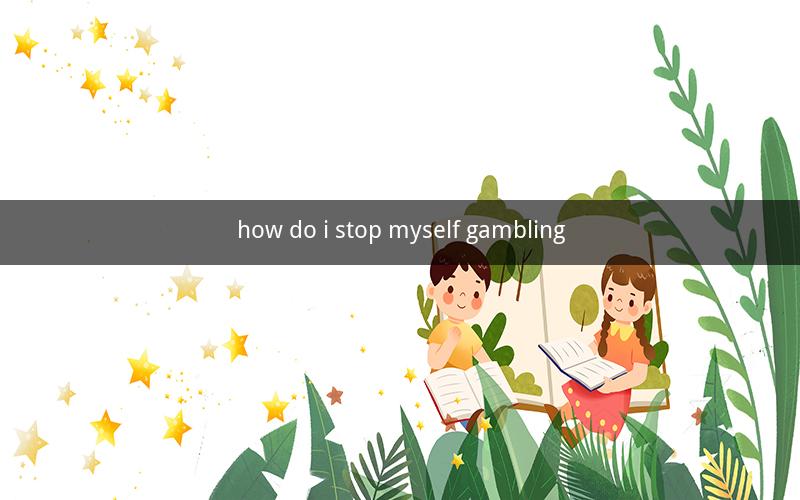
How Do I Stop Myself from Gambling?
Table of Contents
1. Understanding the Problem
2. Identifying Triggers
3. Setting Realistic Goals
4. Seeking Professional Help
5. Building a Support System
6. Financial Management Strategies
7. Alternative Activities
8. Mindfulness and Stress Reduction
9. Monitoring Progress
10. Staying Committed
1. Understanding the Problem
Gambling addiction can be a complex issue, often rooted in psychological, social, and environmental factors. To effectively address the problem, it is crucial to first understand its nature. Gambling addiction is characterized by an inability to control the urge to gamble, despite negative consequences. It is important to recognize that gambling is a form of entertainment, but for some, it can become an obsession.
2. Identifying Triggers
Triggers are situations or emotions that may lead to a gambling relapse. Identifying these triggers is essential in developing strategies to avoid them. Common triggers include financial stress, boredom, social events, and even certain emotions like excitement or anxiety.
3. Setting Realistic Goals
Setting realistic goals is a key step in overcoming a gambling addiction. These goals should be specific, measurable, achievable, relevant, and time-bound (SMART). For example, a goal could be to limit the amount of money spent on gambling or to avoid visiting casinos for a certain period.
4. Seeking Professional Help
Professional help can be invaluable in overcoming a gambling addiction. Therapists, counselors, and support groups can provide guidance, support, and coping strategies. Cognitive-behavioral therapy (CBT) is particularly effective in addressing the underlying causes of gambling addiction.
5. Building a Support System
A strong support system can make a significant difference in overcoming a gambling addiction. This may include family, friends, or support groups. It is important to communicate openly with loved ones about your struggles and to seek their understanding and support.
6. Financial Management Strategies
Financial management is a critical aspect of overcoming a gambling addiction. Creating a budget, setting aside funds for essential expenses, and avoiding credit card debt can help prevent financial stress that may trigger gambling urges. It is also important to consider seeking financial counseling if necessary.
7. Alternative Activities
Finding healthy alternatives to gambling can be a powerful tool in overcoming addiction. Engaging in hobbies, exercising, volunteering, or joining social clubs can provide a sense of fulfillment and reduce the urge to gamble.
8. Mindfulness and Stress Reduction
Mindfulness practices, such as meditation and deep breathing exercises, can help manage stress and anxiety, which are common triggers for gambling. By staying present and grounded, individuals can better resist the urge to gamble.
9. Monitoring Progress
Regularly monitoring progress is important in maintaining sobriety from gambling. Keeping a journal of thoughts, feelings, and behaviors can help identify patterns and triggers. Celebrating milestones and setbacks can provide motivation and insight into the recovery process.
10. Staying Committed
Staying committed to the recovery process is essential for long-term success. This involves maintaining self-discipline, being patient with oneself, and recognizing that relapse is a possibility. It is important to have a plan in place for dealing with potential relapse.
---
10 Questions and Answers about Stopping Gambling
Question 1: What are some signs of a gambling addiction?
Answer 1: Signs of a gambling addiction may include hiding gambling activities, feeling restless or irritable when unable to gamble, lying about gambling habits, and prioritizing gambling over other responsibilities.
Question 2: Can I overcome a gambling addiction on my own?
Answer 2: While it is possible to overcome a gambling addiction without professional help, having support from friends, family, or support groups can significantly increase the chances of success.
Question 3: How can I create a budget to manage my finances?
Answer 3: To create a budget, list all your monthly expenses, including rent, utilities, groceries, and entertainment. Then, allocate a specific amount for gambling, if any, and stick to it.
Question 4: Are there any medications that can help with gambling addiction?
Answer 4: Some medications, such as naltrexone and topiramate, have been shown to help reduce the urge to gamble. However, they should be used under the guidance of a healthcare professional.
Question 5: How can I stay motivated during the recovery process?
Answer 5: Staying motivated can be challenging, but setting small, achievable goals, celebrating milestones, and seeking support from others can help maintain motivation.
Question 6: Can I still enjoy gambling if I have an addiction?
Answer 6: It is possible to enjoy gambling responsibly if you have an addiction. The key is to set limits, be aware of your triggers, and avoid situations that may lead to problem gambling.
Question 7: What should I do if I relapse?
Answer 7: If you relapse, it is important to acknowledge the setback and seek support. Reflect on what led to the relapse and learn from the experience to prevent future relapses.
Question 8: How can I find a support group for gambling addiction?
Answer 8: Support groups for gambling addiction can be found through local community centers, hospitals, or online. Contacting a therapist or counselor can also help you locate a suitable support group.
Question 9: Is it possible to recover from a gambling addiction completely?
Answer 9: Yes, it is possible to recover from a gambling addiction completely. With commitment, support, and proper treatment, many individuals have successfully overcome their addiction.
Question 10: How long does it take to recover from a gambling addiction?
Answer 10: The length of time it takes to recover from a gambling addiction varies for each individual. Some may recover within a few months, while others may require years of ongoing support and treatment.